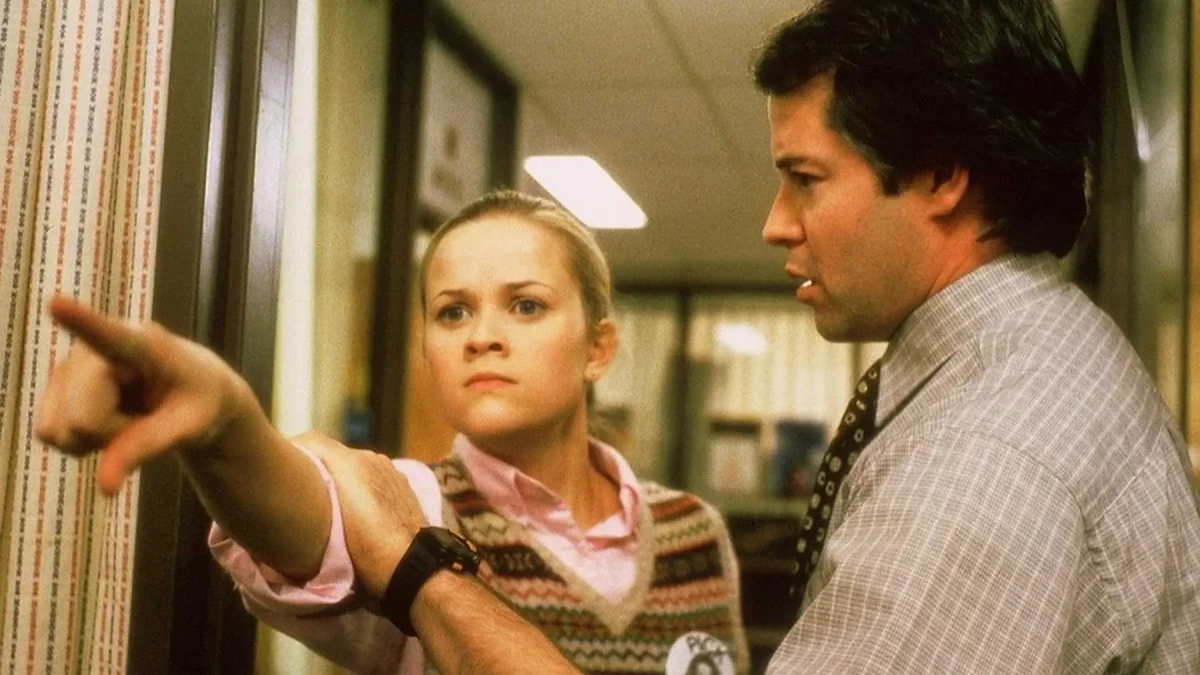Pick Flick
Election often appears on lists of the greatest teen movies ever made, but I wonder whether Alexander Payne’s 1999 film can even be called a teen film. Do teenagers want to watch a movie about the crumbling life of a mediocre man who takes out his sexual frustration by sabotaging a school election? While high schoolers may relish imagining their teachers as pathetic losers, Election’s primary concerns lie less with adolescent rites of passage than the psychosexual neuroses underlying America’s decay.
Regardless of genre, Election stands as the high watermark in Payne’s early career after his acerbic 1996 debut Citizen Ruth. (For the record, I draw the line of “early Payne” after his next film, About Schmidt.) Adapting Tom Perrotta’s novel with biting irony, Payne crafts a film dripping in suburban cynicism. Its acidity grows so steadily you barely notice it, like the parable about a frog in boiling water. The ending borders on nihilistic, with Payne sending its protagonist off as a speck in our dysfunctional sociopolitical landscape. The bleakness is papered over by superficial Midwestern charm. And this darkness is all the richer when set at a high school during an event (a vote for student council president) that is, in the grand scheme, pretty meaningless: It suggests our adult problems are simply extensions of the bullshit drama and pettiness (and horniness) of high school.

We follow two of Payne’s most interesting characters: Jim McAllister (Matthew Broderick), a well-liked civics teacher whose tidy life corrodes over the runtime. His foil is overachieving student Tracy Flick (Reese Witherspoon), who is running for president unopposed because none of the other kids much care; and even if they did, her relentless ambition is not worth the hassle.
Payne carefully sketches Jim and Tracy as filled with contradictions, sympathetic and deplorable in pretty equal measure. We understand the bitterness gnawing at Jim even as his self-deceiving voiceover claims contentedness, and we also recognize his quiet campaign against Tracy to be pathetic. Meanwhile, Tracy’s perfectionism is exhausting and overwrought, but it’s hard to root against a teen who wants to improve her lot in life with dedication. Broderick and Witherspoon are both great, but Witherspoon in particular is downright phenomenal, finding the aching insecurity beneath her character’s ambitions without being too on-the-nose about it.
As stakes escalate, so Payne’s craft rises to the challenge. He captures so much about the characters in the fringes (e.g., every detail of the way Jim prepares for his motel excursion with Linda, played by Delaney Driscoll, enhances just how self-deluded he is). But he also handles the big stylistic choices well: This is one of the best uses of voiceover narration in cinema history, each internal monologue revealing both details about the character and how the characters view themselves, often in direct opposition to truth. One of my favorite bits of irony in a story that’s absolutely dripping in it is that the film’s lone figure who is both genuinely kind and self-aware is the guy who’d be the deluded bully in most stories: the cheerful, popular, surprisingly smart jock Paul Metzler (Chris Klein).

As with Citizen Ruth, Payne’s cynicism towards his characters is intertwined with satire at America’s broken institutions. Perhaps ironically, the abortion satire ends up a tirade against money corrupting the system, while his election story is about how sex is at the root of all of our problems.
Much of what makes this early phase of Payne’s career so blistering and clever is his wizardry at tonal manipulation: He pivots from piercing character insight to cringe-inducing self-immolation to black comedy and back again on a dime and without inducing whiplash. Jim finds Linda’s house empty; he gets stung in the eye by a bee; he witnesses his rising obsession with defeating Tracy implode by a single vote — and within these five minutes come about twenty-seven different emotions.

So Election is a genuinely great film, brilliantly constructed and even smarter than it first appears; and yet I cannot, in good conscience, call it a masterpiece. It’s too much of an unrelenting downer. Payne is so invested in eviscerating every character and institution he comes in contact with that he refuses to find anything joyful in the story. Even the sympathetic characters, like Paul and arguably his barely-closeted lesbian sister Tammy (Jessica Campbell), are here less for us to root for them than for Payne to take a few more jabs at dysfunction in the societal microcosm of high school.
Election stands as Alexander Payne’s breakthrough and one of his biggest achievements. It’s the moment his career advanced from the intriguing promise of The Passion of Martin and Citizen Ruth to one of the great American filmmakers of his generation, fleeting and inconsistent though his claim to the laurels of “greatness” would be. With razor wit and unrelenting irony, it’s aged well: 25 years later, it’s still fresh and incisive. But it’s got so much bite I rarely want to revisit; partake in this Election at your own risk.
- Review Series: Alexander Payne
Is It Good?
Exceptionally Good (7/8)
Awards, Honors, & Rankings
Dan is the founder and head critic of The Goods. Follow Dan on Letterboxd. Join the Discord for updates and discussion.

